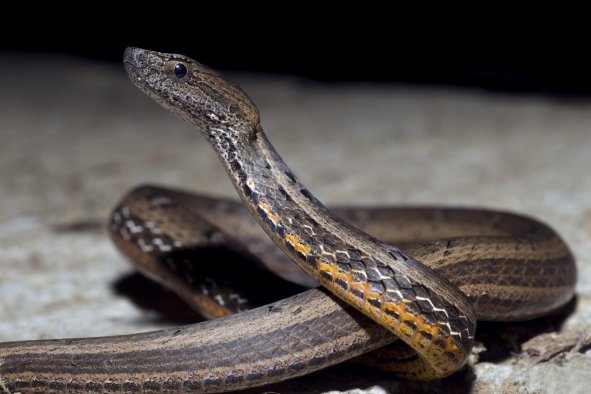A family meal of grilled bear meat went very wrong after six people were diagnosed with a rare parasitic disease.
The infected individuals had attended a South Dakota family reunion in July 2022 where they consumed kebabs made from black bear meat, according to the Centers for Disease Control and Prevention (CDC).
The bear meat had been harvested in Saskatchewan, Canada. It was stored in a household freezer for 45 days before being thawed and grilled and was initially served undercooked.
Trichinellosis is a rare parasitic disease caused by species of Trichinella roundworms. It is primarily contracted through the consumption of raw or undercooked meat from animals infected with Trichinella larvae. While historically associated with pork, modern cases in the United States are more often linked to wild game, such as bear, boar and cougar.
Trichinella larvae reside in the muscle tissue of infected animals. When humans consume meat containing these larvae, the larvae enter the intestines, where they mature into adult worms. The adult worms reproduce and birth new larvae, which travel through the bloodstream to muscle tissues and organs—even the brain.
"During January 2016–December 2022, seven U.S. trichinellosis outbreaks, including 35 probable and confirmed cases, were reported to CDC; bear meat was the suspected or confirmed source of infection in the majority of those outbreaks," the CDC report about the South Dakota incident states.
Freezing game meat can often kill species of these worms, but unfortunately in this case, the bear meat was infected with the the freeze-resistant species Trichinella nativa.
The outbreak was first noticed after one of the family members reported to the hospital six days after the meal. A 29-year-old man was experiencing fever, muscle pain, and eye swelling and had been hospitalized twice in a 17-day period, but his symptoms were only linked to trichinellosis after he revealed the bear meat consumption during his second visit.
The case was reported to the Minnesota Department of Health, which discovered that eight other family members from three states (Arizona, Minnesota, and South Dakota) had shared the meal.
"The meat was initially inadvertently served rare, reportedly because the meat was dark in color, and it was difficult for the family members to visually ascertain the level of doneness. After some of the family members began eating the meat and noticed that it was undercooked, the meat was recooked before being served again," the CDC report states.
Five attendees consumed the bear meat, and eight ate the vegetables served alongside the meat, with six people (four who ate the meat and two who only ate the vegetables) being discovered to also have trichinellosis. Three individuals were hospitalized, and all six symptomatic people eventually recovered with treatment.
The CDC also tested leftover meat from the meal—which had been frozen for over 100 days by that point—and discovered that it contained moving T. nativa larvae. The larvae in the meat are thought to have contaminated the vegetables at some point during the food preparation process.
"The family member who harvested the bear and provided meat samples for testing was advised to discard any remaining meat," the report said.
The CDC emphasized that freezing meat, especially from wild game, is not a reliable method to eliminate these parasites. The CDC also warned about the risk of cross-contamination, as Trichinella-infected meat can contaminate other foods if not handled properly.
The CDC's findings underscore the need for better public awareness and education regarding the safe preparation of wild game. They stress that cooking meat to an internal temperature of at least 165 degrees Fahrenheit is essential to kill Trichinella parasites.
"People who consume wild game meat should be aware that adequate cooking is the only reliable way to kill Trichinella parasites," the report said.
"Temperatures should be verified with a meat thermometer. The color of meat is not a good indicator of cooking adequacy."
Do you have a tip on a science story that Newsweek should be covering? Do you have a question about parasites? Let us know via science@newsweek.com.
Disclaimer: The copyright of this article belongs to the original author. Reposting this article is solely for the purpose of information dissemination and does not constitute any investment advice. If there is any infringement, please contact us immediately. We will make corrections or deletions as necessary. Thank you.



